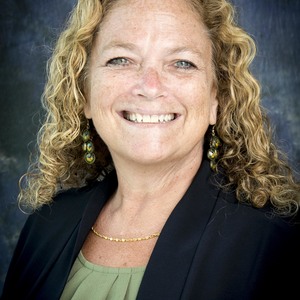By investing in public infrastructure we are able to create much more economic growth and opportunities than any tax cut. The same rings true with education, investing in education is incredibly undervalued and the decrease in federal funding for lower and higher education has contributed significantly to the student loan debt crisis and decreased economic outcomes for many communities.
Ryan Walsh
POINTS TOTAL
- 0 TODAY
- 0 THIS WEEK
- 429 TOTAL
participant impact
-
UP TO128gallons of waterhave been saved
-
UP TO64meatless or vegan mealsconsumed
-
UP TO315milesnot traveled by car
-
UP TO240milestraveled by bus
-
UP TO75milestraveled by foot
-
UP TO2.6poundsfood waste prevented
-
UP TO42pounds of CO2have been saved
-
UP TO5.0zero-waste mealsconsumed
Ryan's actions
Food
Reduce Animal Products
I will enjoy 3 meatless meal(s) and/or 1 vegan meal(s) each day this week.
Food
Weekly Meal Planning
I will reduce food waste and save money by prepping for 2 meal(s) each day, only buying the ingredients I need.
Food
Zero-Waste Cooking
I will cook 1 meal(s) with zero-waste each day
Transportation
Walk Instead
I will walk 5 mile(s) each day instead of driving and avoid sending up to 3.01 lbs of CO2 into Earth's atmosphere.
Transportation
Use Public Transit
I will use public transit 16 mile(s) each day and avoid sending up to -0.59 lbs of CO2 into Earth's atmosphere.
Participant Feed
Reflection, encouragement, and relationship building are all important aspects of getting a new habit to stick.
Share thoughts, encourage others, and reinforce positive new habits on the Feed.
To get started, share “your why.” Why did you join the challenge and choose the actions you did?
-
REFLECTION QUESTIONTransportation Use Public TransitThe US spends roughly 20% of its federal budget on defense. In contrast, 2% goes to education, 20% goes to social security and 3% goes to transportation infrastructure. Do these numbers surprise you at all? Why or why not? How would you adjust them if you could?
 Ryan Walsh 10/11/2019 6:16 AMStudies from the EPI and other organizations have shown that investment into public transportation infrastructure (e.g. highways, trains, buses, etc) have a multiplier effect of $1.5 returned on every $1 spent (https://www.epi.org/publication/the-potential-macroeconomic-benefits-from-increasing-infrastructure-investment/).
Ryan Walsh 10/11/2019 6:16 AMStudies from the EPI and other organizations have shown that investment into public transportation infrastructure (e.g. highways, trains, buses, etc) have a multiplier effect of $1.5 returned on every $1 spent (https://www.epi.org/publication/the-potential-macroeconomic-benefits-from-increasing-infrastructure-investment/).
By investing in public infrastructure we are able to create much more economic growth and opportunities than any tax cut. The same rings true with education, investing in education is incredibly undervalued and the decrease in federal funding for lower and higher education has contributed significantly to the student loan debt crisis and decreased economic outcomes for many communities. -
REFLECTION QUESTIONFood Reduce Animal ProductsWhy do people in richer countries eat more meat than people in other places? How does eating more meat affect our planet and other people?
 Ryan Walsh 10/04/2019 6:36 AMMeat is a centerpiece culture and it indicates one's status. It's the centerpiece because it defines most meals, when people plan get together and holidays they talk about what meat they will eat, no one is going to say "Come on over on Sunday to watch the game, we'll have a few beers and throw some corn on the grill".
Ryan Walsh 10/04/2019 6:36 AMMeat is a centerpiece culture and it indicates one's status. It's the centerpiece because it defines most meals, when people plan get together and holidays they talk about what meat they will eat, no one is going to say "Come on over on Sunday to watch the game, we'll have a few beers and throw some corn on the grill".
It indicates status because, throughout history, the process to raise livestock was a massive investment in time and resources; making it a rare treat for those who were not wealthy. That cost of meat has gone down massively because of government subsidies for crops to feed livestock and for livestock farmers as well.
I say all of this as someone who used to eat meat and love it. Everyone eating meat every day, especially beef, is unsustainable for the planet. There is not enough resources and land for the growing demand for meat which is pushing farmers in countries like Brazil to burn down ecosystems like the Amazon Rainforest for more land to raise beef. The cost in resources and land for animal protein is far greater than vegetable protein.
However, meat is cultural and people do not connect the supply chain of where their food is produced. For them it's the end result, a juicy steak and a great meal. It's understandable and won't change until the economics of the market change.
One thing I'm hopeful about is the potential for vegetable protein that tastes like meat (like the Impossible Burger) becoming increasingly popular and the continueing development of lab grown meat that avoids the whole wasteful process of raising livestock on limited resources. If consumers have more choices that allow them to enjoy what they love at a comparable (or cheaper price) they will start to switch.
-
 Ryan Walsh 10/01/2019 7:18 AMHey all, about a year ago after reading the full UN climate report I went fully vegetarian in order to reduce my environmental impact. If anyone is interested in eating more vegetarian/vegan meals and/or going fully vegetarian, please let me know and I'd be happy to share my experience and give some tips.
Ryan Walsh 10/01/2019 7:18 AMHey all, about a year ago after reading the full UN climate report I went fully vegetarian in order to reduce my environmental impact. If anyone is interested in eating more vegetarian/vegan meals and/or going fully vegetarian, please let me know and I'd be happy to share my experience and give some tips.
Looking over the goals listed here, my primary goals so far is to plan meals better and to reduce overall food waste.-
 Robbi Walls 10/02/2019 7:06 AMI stopped eating meat in 1997 and have never looked back. The thought of putting meat in my mouth and chewing it is gross.
Robbi Walls 10/02/2019 7:06 AMI stopped eating meat in 1997 and have never looked back. The thought of putting meat in my mouth and chewing it is gross.
-